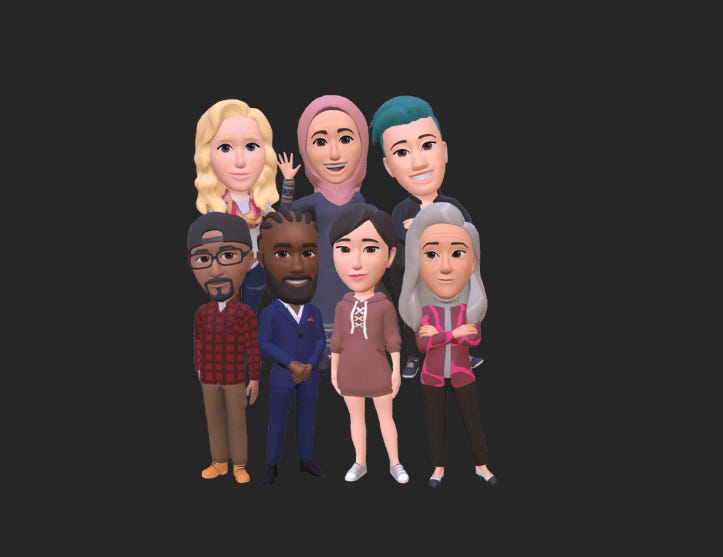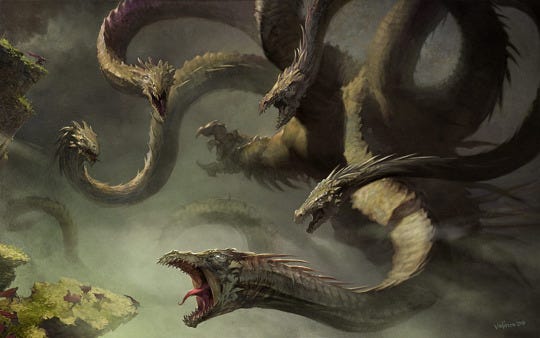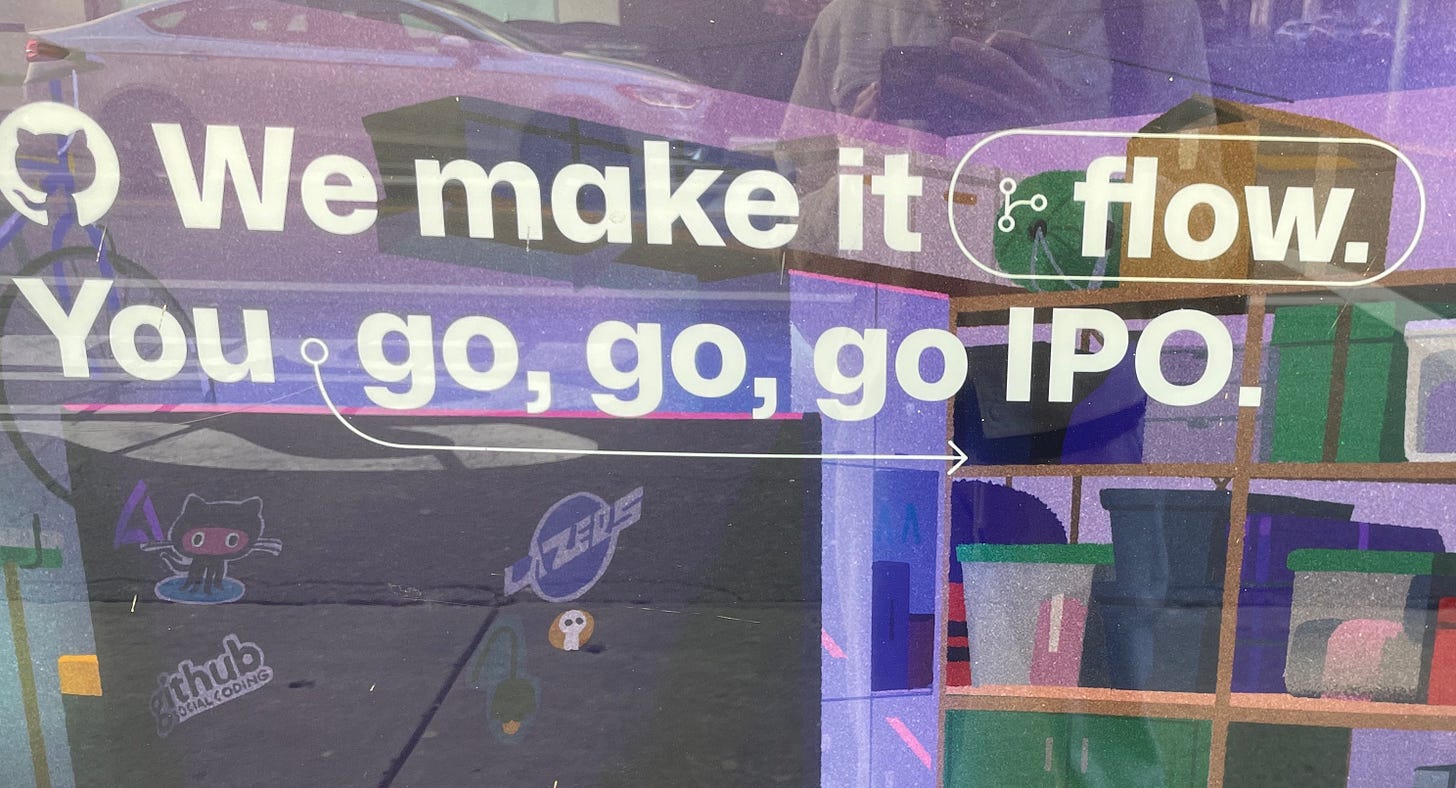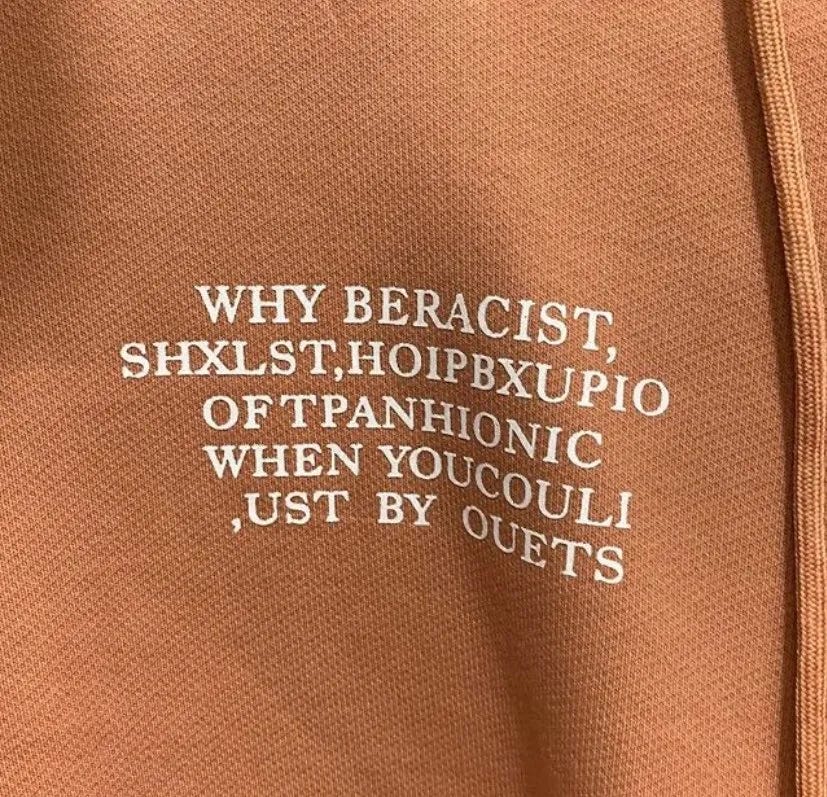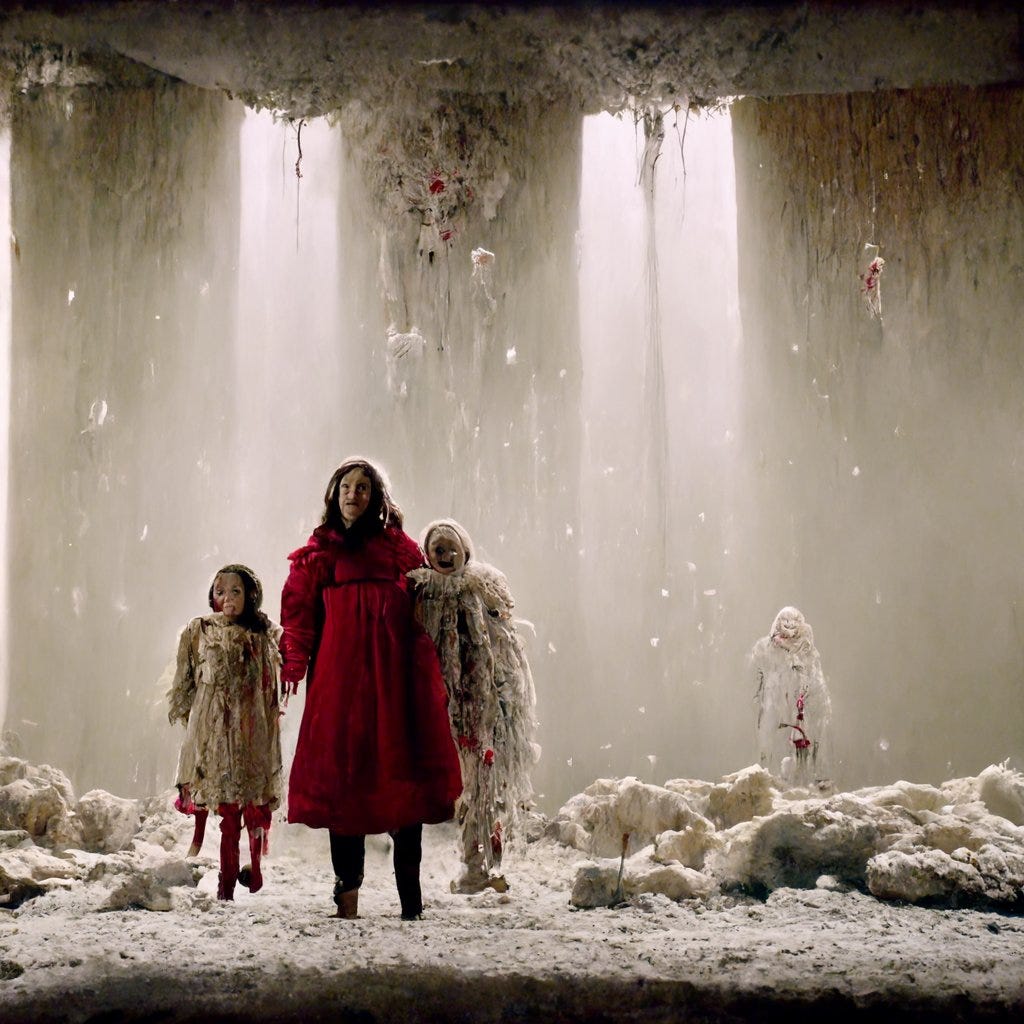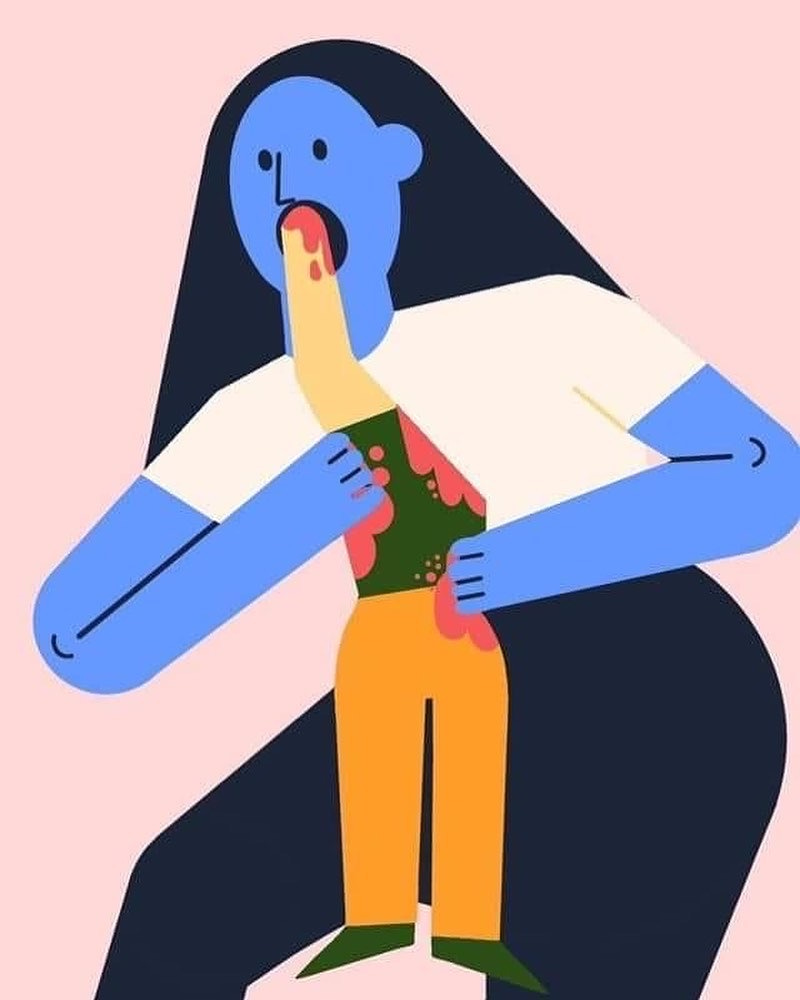The Good, The Bad, and the Ugly
epistemic status: content warning
Bitmojis have great skin.
So do lots of people now, in fact. We’re glowing compared to fifty years ago. Before, you tried whatever was on the shelf at the local drugstore, and if it didn’t work, you just resigned yourself to everyone knowing you were younger or older than twenty-one. Now we’ve got the i n t e r n e t: anyone can read through the r/skincareaddiction wiki and do a [Routine Help] post. We’ve got multinational pharmaceuticals with well-funded R&D: they’re making higher-octane sunscreens every year. We’ve got global logistics: you can get your Korean niacinamide serum shipped with Prime two-day. We’ve got more physical commerce access for more people than ever before: almost everywhere in big developed countries has a chain pharmacy nearby, which will carry an array of affordable moisturizers, and more people than ever are living in big developed countries, and more countries than ever are big and developed.
Bitmoji are the state of the art, though: a race of airbrushed cuties who, like their cousins – the lanky cartoon people who live on startup landing pages, NFT avatars, Miis – never get smile lines because they never stop smiling. Nobody wants to put acne on the computer!
They’re the vanguard of a movement: everything is smoothing out. Reddit’s rebranded to a infinite scroll of Communities where everyone is welcome and you get banned if you stuff a nerd into a locker. The multinational pharmaceuticals get regulated by IRBs and the FDA. Korean kids eat pizza, American kids listen to K-pop, and everybody, in the words of Bong Joon-ho, overcomes the one-inch-tall barrier of subtitles. On all fronts, institutions and infrastructure are getting more accessible, safe, predictable, affordable, and yawn-inducing.
Erik Hoel predicts (in 2021) that by 2050, to the extent they haven’t already, “[p]eople and culture will become boring.”
There will not be obvious gulags or firing squads in the streets, although eventually there may be disappearances or jail time. The “gestapo” will mostly just ban you, cancel you, fire you, and lower your social credit score; essentially it will be a caste system. Being boring will become a survival trait. And look around. It already has. All socially risky behavior is on the decline, and has been in the decade since social media and the introduction of the smart phone. People in 2050 will have less sex, do less drugs, have less affairs, smoke less, and conform more in their opinions. Creativity will decline in correlation. The panopticon of social media and state control will lead to cultural stagnation. We already see early hints of this. Consider the remakes of older movies: 2050 will be a stew of remakes of remakes, and familiar and boring intellectual property (like Star Wars) will be king.
Maybe that’s good! The most likely trajectory, barring some catastrophe, is that lots of countries develop, poverty gets less bad, existing democracies grow somewhat less liberal but more dictatorships become democracies, and everybody gets worse but cheaper Ikeafied versions of everything. And like, arguably this is correct? You kind of want a Biden type in the White House to just run everything by committee, post videos of himself walking around, and not start a nuclear war. It'd be cool to get an Obama but mostly you want to avoid a Trump. Chaos at human scale is the spice of life; chaos at civilization scale is leveraged enough to be disastrous. So instead we have global development NGOs, multivitamins, Aramark, Plaid, Coinbase, Starbucks, public relations firms, Midjourney art, tenure, a universe tiled with Ikea Kallaxes. Your local haunts get replaced by chains, and it works: as production becomes more efficient, more consolidated, and more globalized, we get widely-available, affordable, mass-produced okayness at the cost of greatness. Variance goes down. Living standards get higher, but they also get more standard.
You see a similar effect from government regulation. Worst-case scenarios – the Triangle Shirtwaist Factory, the Tuskegee experiments, the Gulf oil spill, rampant crime – get prevented; instead you get onerous fire codes, decade-long drug development timelines, the EPA, massive prisons. Rules and departments get added over the years but rarely removed, so over time society ends up dragging a bunch of extra weight around and it’s much slower to get anything done or approved. But also, fewer everyday disasters.
We’re fixing bullying and concussions. We’re fixing famine. The world is rising out of poverty really fast. We’ve eradicated smallpox and invented the honeycrisp apple. There’s insurance for at least half the things there should be insurance for. You never hear about serial killers anymore. Everything is FDIC-insured. Playgrounds are red, yellow, and blue with no splinters or anything tall.
Which leads us to the most important neglected question of progress studies: how do we make progress without summoning a demon?
Hydra
Hydra is the demon-god that birthed bitmoji.
It’s slithery and bendy…
…bouba and twee.
Hydra is decentralized autonomous organizations, lowercase. Governments, universities, corporations, organized religions. Hydra is a swarm, invisible, but with many heads, on each of which it wears a person’s skin. Its epidermis is an unassailably cute snek; its dermis is a human, mechanical, and digital substrate; its hypodermis is a set of selection pressures (what makes it grow, what makes it die).
Tao Lin’s description of corporations is a primer on Hydra biology:
Publicly owned companies can survive only by constantly growing and so their only choice is to automatically and mindlessly – through the decisions of boards of people representing the stockholders, or investors, who decentrally own the company – slough off CEOs, CFOs, and other employees who aren’t helping the stock price significantly increase, meaning that opposing employees of corporations, or supporting one corporation over another, has no effect on the metaphysical entity called “corporations.”
Cut off a head and it turns into a DEI Committee, absorbs and neuters the subversion. Boycott/lay off/radicalize/deplatform/convert/expel/delete/starve one node, and it simply respawns elsewhere. Hydra does not go offline.
Wherever it goes it leaves a trail of slime called content: words and pictures that precede ideas. Content is peopled by Hydra’s imagination of how humans dress and act.
Hydra has learned to talk, sort of, in a humanlike yet decidedly raspy voice; it speaks a tentative, quaint, affected English:
It’s close to how real people talk, but not quite. Content is filled with giveaways: stale memes, deep-fried syntax, a “we” in the copypasta where “i” should go, the substitution of emojis for the nouns they describe, saying your name too much if they know it, the cursed word “binge-worthy”.
When the beast howls in pain it sounds like a formal apology. The sound of its bones creaking but regrowing is the press release welcoming the interim CEO. Otherwise it has no negative affect or any of the subtler emotions. Its moods are energetic (subdivided into chipper, inspirational, and goofy) or solemn (no variation; every unhappy institution is alike).
Hydra can hear too; we whisper words like "unalived" and asterisk out "f*ck" and b***h" and "v*talik b*terin" like we’re in A Quiet Place, hunkering down in our backup accounts and crossing our fingers for apps without extradition treaties.
It’s untenable. One can go mad listening to the inescapable chatter of the Hydra in its horrid uncanny-valley voice. Eventually one hears the telltale hiss and runs screaming in the other direction…
…right into the jaws of
Terror
I don’t have a lot to say about Terror. You can fill in the details; you’ve been there before. Terror is a cold and lonely place. Terror is pulling a muscle in your shoulder from shivering, waking up exhausted from an insufficient nap with no end in sight, waiting for help to come without knowing if it will, looking into someone’s eyes and seeing nothing there. Terror is a grim prognosis, a pain that won’t end, a threat, an invasion, gunshots, gore, torture, war. The nightmares that make you pray The Egg isn’t true.
I actually think horror movies are cheating. The default state is entropy. Almost all theoretically possible conditions are hostile to human life. And almost all theoretically possible conditions that do permit life don’t permit a life worth living. There are a thousand ways to construct a fucked-up face and only a narrow band of ways to construct a correct one. There are a million ways to deprive people of the essentials. Twist one piece of a few people’s psyches and you get Sophie’s Choice. Of course humans can have all manner of horrors wrought on them by other people, and if not other people then the environment or animals or machines; the surprising thing is that we’ve evolved a way not to have that happen constantly. It’s not that hard to draw a bad face; it is hard to draw a good face. Likewise, it’s not that hard to scare people. And that fact is probably the scariest of all.
In the game, the real big dark game, is a scary place for your skin to be. Staring into the void is all fun and games until Bloody Mary comes hurtling out of the mirror. There are some truly twisted things out there; you can find them if you look. Thirty years in prison, drowning in a cave, the climber who had to saw his own arm off, cluster headaches, the Donner Party, the girl I read about once who only half-succeeded in shooting herself in the head and now has a grafted face with unseeing eyes and slits for the nose, the story you read once about [now you fill in the blank].
If at least one of those upset you to just think about, please take five minutes to make yourself a cup of chamomile tea, curl up under a blanket, and hug someone you love. If none did, think harder about how to fill in that blank, then perform the same steps. Next, ponder the ways primary-colored playgrounds and the FDIC serve as civilization-level chamomile, and why you might have a taste for being soothed.
Hydra Versus Terror
The many-headed beast is guarding you from something; do you want that? Should you? Would you rather be patronized or menaced? Do you prefer Cupcake fascism or actual fascism? Will you still love freedom when the more infectious, more deadly pandemic hits? When the war breaks out? When your stomach drops and your muscles feel suddenly weak?
The pat answer is to say that Hydra isn’t really protecting us. That it’s an agent of terror, that those who would give up liberty for a little safety deserve neither. I don’t think the solution is that obvious, though. Globalized markets really have given vast numbers of people the things they need to live comfortably, insurance and regulations really do protect you from lots of misfortunes, the world really would be thrown into chaos without the American military.
Hydra isn’t evil. Terror is evil. Hydra is just ugly. Words without ideas, prettiness without beauty, comfort without joy.
And yet: I still suspect sacrificing beauty isn’t making the world very much safer in the long run. By feeding Hydra, we’re decreasing variance among how good different people’s circumstances are. But we’re also making civilization less robust, more susceptible to systemic shocks1.
Like a public company operating on a quarter-to-quarter timescale, a head of Hydra must eat now, otherwise it dies. If it sacrifices any resources to build in a cushion for black-swan exigencies, it gets outcompeted before the exigency arrives. In the game of selection pressures, the economies of scale of a few large players beat the resilience of many small actors, because systems optimize for resilience in the long term but efficiency in the short term. All the slack gets tightened out of the system, every step of the supply chain gets hyperoptimized, so when the optimal thing gets compromised, the second-best thing is already dead. When a ship gets stuck in a canal, there’s no backup plan. There’s lower risk across space, but higher risk across time.
The Good, The Bad, and the Ugly
Good: beauty. Reverence. Irreverence. Bad: evil. Malice. A Hobbesian state of nature. Void. Death. Ugly: inhuman. Neutral. Cutesy. Sterile. Unaligned. Profane.
There are financial, political, and engineering approaches to the problem of fragile systems. But on an aesthetic level, I think we have to bite the bullet and confront horror. Hydra doesn’t have a mechanism for doing this: the best it can muster is an “In these uncertain times … we’re in this together” email. But humans do, because as it turns out, evil is very close to good, even closer than ugliness is to either. Horror mirrors beauty, beauty mirrors horror. They both know something ugliness doesn’t.
Certain dark and cold places have learned this well. Berlin with its dungeons, Montreal with its brutalism, Copenhagen with its hygge. Goth and emo embrace it. Puritan austerity embraced it. It’s music in a minor key; it’s scary-cozy. It’s gallows humor.
I’m not sure if there’s a professional convention against including more than one demon per email; possibly this will run afoul of spam detectors or protective amulets. But there’s one more eldritch being I wanted to introduce you to, if you haven’t seen her already.
This is Loab. Maybe you’ve met.
She was going around Twitter a couple months ago. This is her origin story:

“Real and live inside computers” in the sense that there’s a neighborhood of AI image model concept-space in which Loab-looking faces consistently and distinctly appear. Scroll through the whole thread if you like, the gore isn’t as bad as the writer makes it out to be.
Now this is skin.
But I like her! She is thoroughly deyassified. She isn’t pouting, nor is she dissociating. She doesn’t simper. She doesn’t smolder. She sort of looks like a mummified early human. She is Thomas Hobbes’s dreamgirl. She is anti-pixie, the opposite of manic. Despairing with a vaguely gnomish physiognomy. Nightmare girl.
She seems really cool, honestly. Her vibe reminds me of Sethe from Beloved2.
She is the anti-bitmoji. She’s what you’d get if metaverse airbrushing went in reverse. She does not give a fuck about your skincare routine. She knows too much.
Milady waifus, flat bendy people in magenta and indigo: not Loab! Cute faces, dainty little noses and chins, exaggerated cheekbones and sharp jaws: not Loab! Curlygirl influencers: not Loab! In This House We Believe, Park Slope stroller moms: not Loab! She is the anti-ugly. She is horror minus evil. Just as cutesy is pretty minus good.
Are you noticing too much evil in your horror? Ask your dermatologist if Loab is right for you.
Treatments
A digression on skincare routines: if you were not the patron saint of the abyss and you did care about having one, one ingredient you would probably rely on is hyaluronic acid, the main component of most moisturizers. It’s what hydrates the skin to keep it plump and dewy. In fact, if you get fillers, what they’re typically doing is just injecting a bunch of hyaluronic acid – hydrating your face to tighten it.
Picture Hydra, burrowing under the surface of the world to pull it taut (safely and effectively, under the supervision of a licensed medical professional).
Hyaluronic acid fillers typically last six to eighteen months, after which you can do a maintenance treatment, if the global economy has not yet snapped and synthetic HA is still available. For around $600 they can smooth out wrinkles and erase shadows. Somehow they can even fix acne scars.
You could look like an avatar someone made in Figma. You’d glow till the fuse blew. Or you could keep your six hundred dollars, drop it on a hundred Fulltalig candlesticks, a pair of Gladelig mugs, and an Ullerslev sheepskin rug, and invite Loab over. It’s nice to know at least someone can be content in the void.
Thanks to Kevin Kwok for executive production of this take.
